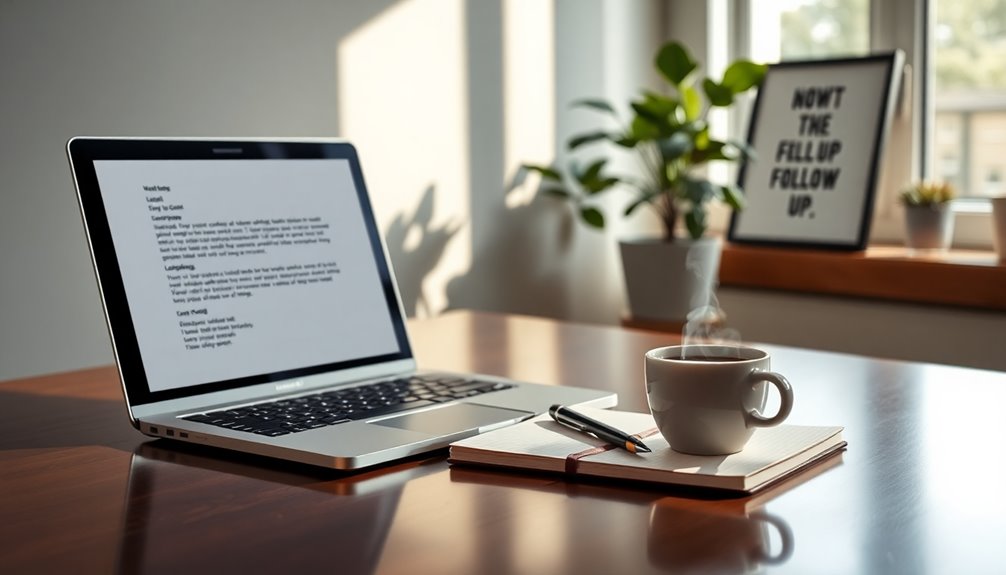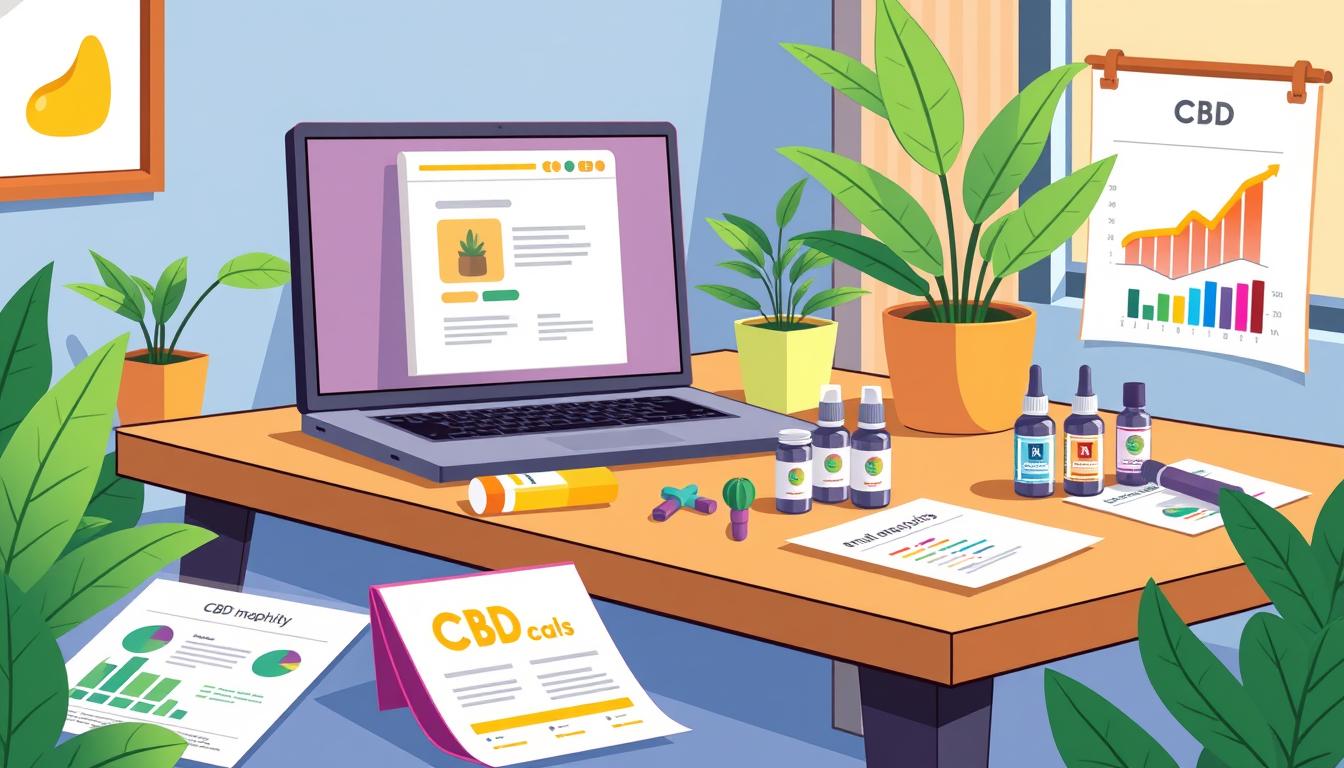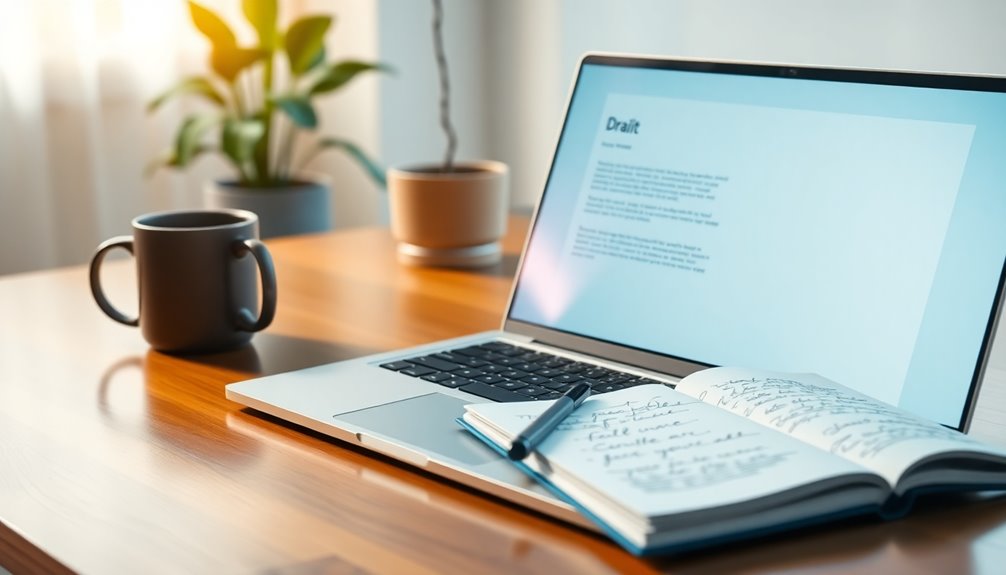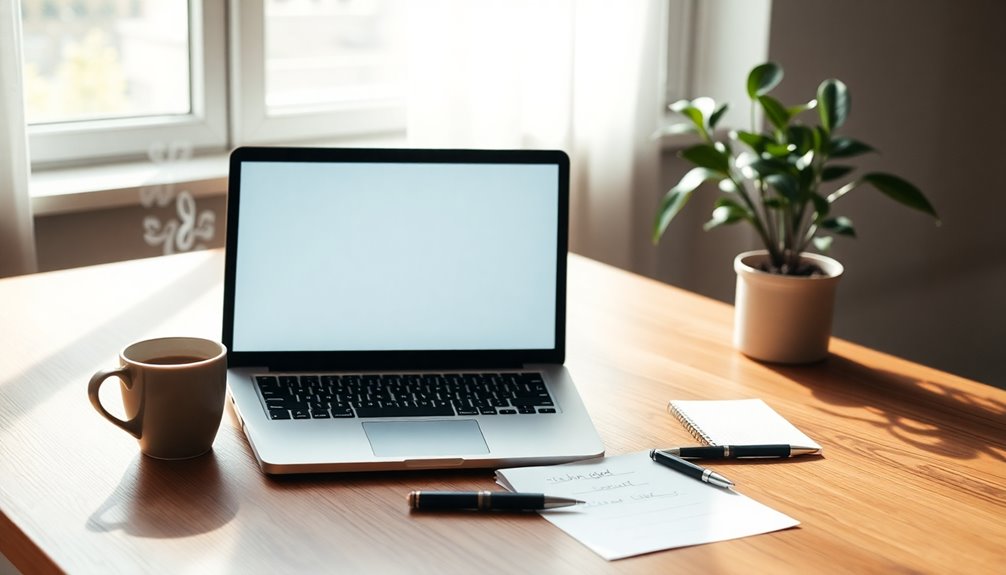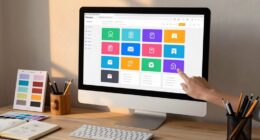To write a follow-up email that gets you noticed after an interview, send it within 24-48 hours. Start with a clear subject line like "Thank You for the Interview." Express appreciation for the opportunity and reiterate your interest in the role. Mention specific topics from your discussion to personalize the email and show attentiveness. Keep the language professional and concise, highlighting key points that align with your qualifications. Proofread for errors before sending. A thoughtful closing can reinforce your connection. Want to stand out even more? There's plenty more to explore about crafting the perfect follow-up!
Key Takeaways
- Send your follow-up email within 24-48 hours after the interview to maintain enthusiasm and keep your application fresh in the interviewer's mind.
- Use a clear subject line like "Thank You for the Interview" to convey the purpose of your email immediately.
- Personalize the email by referencing specific topics discussed during the interview to enhance engagement and demonstrate attentiveness.
- Express appreciation for the opportunity, reiterate your interest, and highlight how your qualifications align with the discussed points.
- Craft a memorable closing statement that reinforces your unique connection and highlights your fit with the company culture.
Introduction
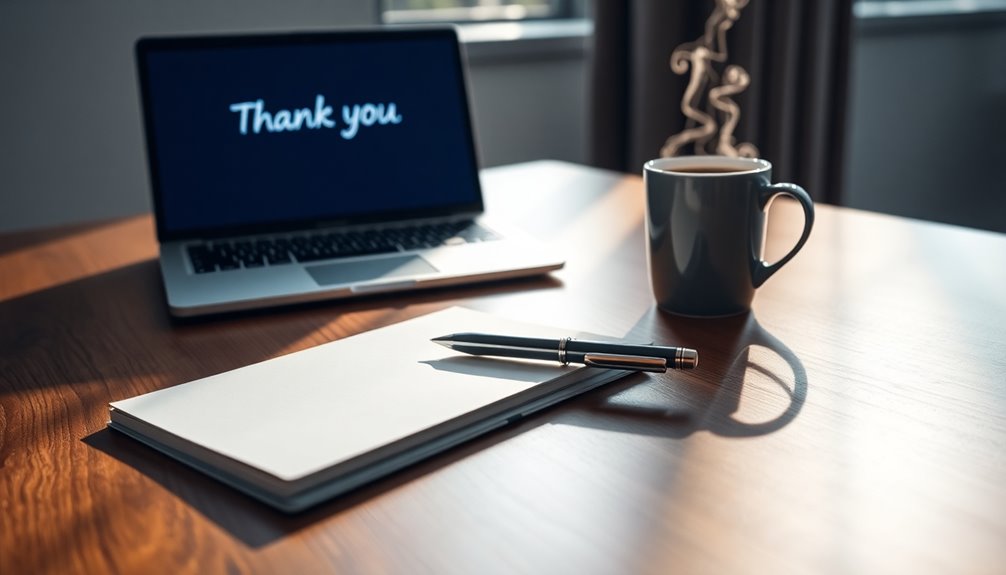
Following an interview, sending a follow-up email is crucial for maintaining momentum in the hiring process. It's your opportunity to express gratitude for the interviewer's time and insights, which many recruiters appreciate. Additionally, a well-crafted followup email after interview can reinforce your enthusiasm for the role and highlight key qualifications that make you a strong fit. It also serves as a professional gesture to reiterate your interest and can leave a lasting impression. By taking this extra step, you demonstrate proactive communication skills and a genuine commitment to the opportunity.
Aim to send your follow-up email within 24-48 hours post-interview to reinforce a positive impression and demonstrate enthusiasm for the role you're pursuing.
When crafting your email, personalize it by referencing specific topics discussed during the interview. This not only enhances engagement but also helps you stand out from other candidates.
Keep your email concise; a well-structured message reiterating your interest in the position can keep you top-of-mind with hiring managers.
Additionally, don't forget to include a polite inquiry about the next steps in the hiring process. This shows your continued interest and encourages a response from the interviewer.
Maintain a professional tone throughout your email, as this reflects your suitability for the role.
Demonstrates Your Continued Interest
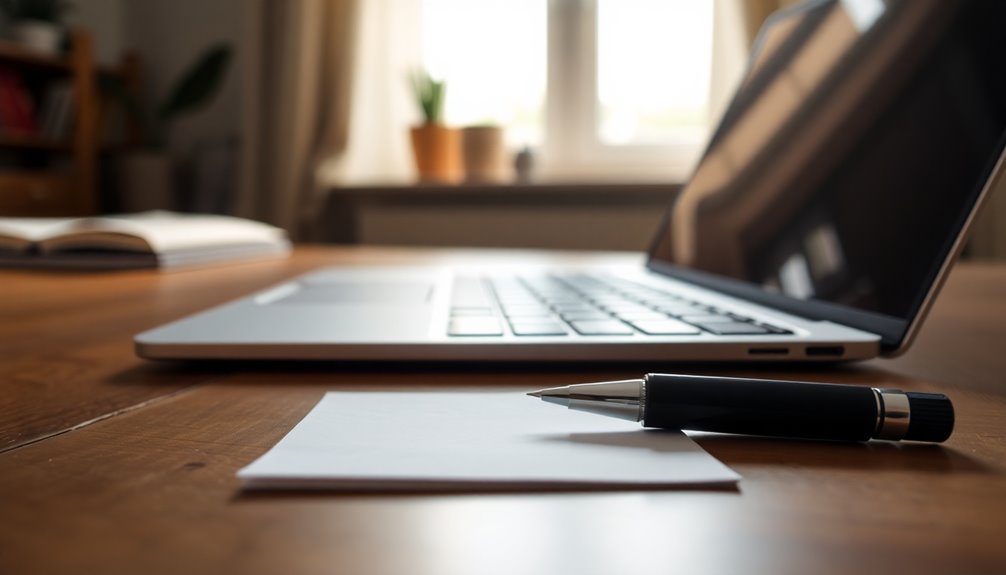
A timely follow-up email not only reinforces your enthusiasm for the role but also signals to the interviewer that you're genuinely invested in the opportunity. Sending your follow-up email within 24-48 hours after the job interview can make a significant impact.
Recruiters appreciate this gesture, with 80% acknowledging its importance. By personalizing your follow-up and referencing specific topics discussed during the interview, you demonstrate attentiveness and a sincere interest in the position.
In your thank you email, make sure to express continued interest in the role. This shows professionalism and differentiates you from candidates who may not take this extra step. A well-crafted email can create a positive impression, reminding the hiring manager of your qualifications and fit for the role.
Additionally, engaging communication keeps you top of mind in competitive job markets, where many candidates risk being overlooked.
Don't hesitate to include additional information that supports your candidacy, as this can further reinforce your interest. A thoughtful follow-up email isn't just a courtesy; it's a powerful tool that showcases your dedication and can influence hiring decisions.
Personalized Closing Statement
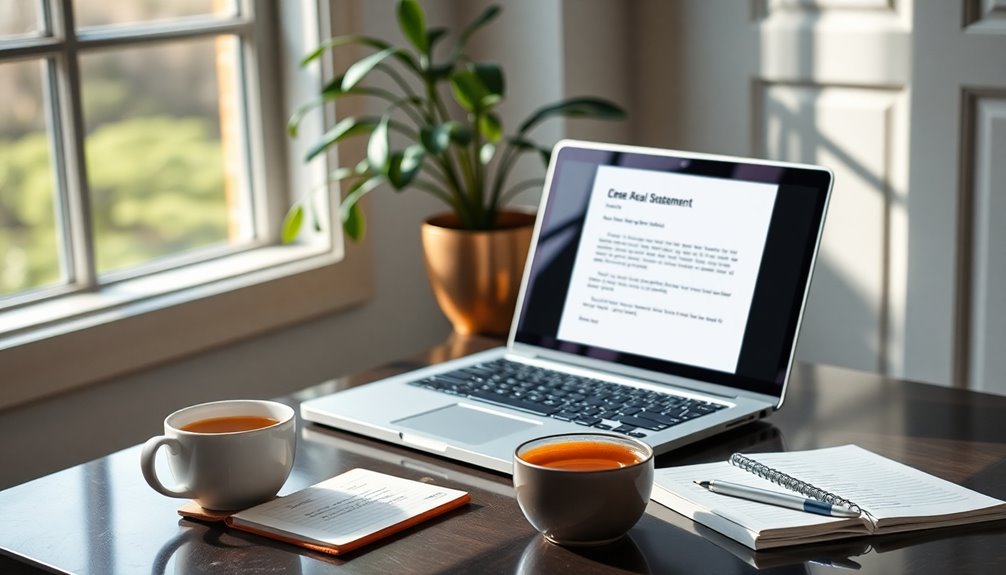
Crafting a personalized closing statement in your follow-up email can leave a lasting impression on the interviewer. This is your chance to reinforce the unique connection you built during the interview. By including a specific detail or insight from your conversation, you show that you were engaged and attentive, making you more memorable. A well-researched understanding of your potential employer's topical authority can also enhance the relevance of your insights and demonstrate your commitment to the role.
Expressing genuine enthusiasm for the role and the company can evoke a sense of positivity that resonates with hiring managers. For example, if you discussed a project that excites you or shared how your values align with the company culture, mention it in your closing. This demonstrates how you align and fit within the organization's ethos. Additionally, highlighting your commitment to personal growth can indicate your willingness to evolve alongside the company. The importance of trust creation in establishing long-term professional relationships can further emphasize your dedication to mutual success. Furthermore, recognizing patterns of behavior in your interactions can enhance your ability to connect with the company culture.
A well-crafted closing statement also serves as a call to action, encouraging the recipient to respond or engage further about your candidacy. You might say something like, "I'm eager to contribute to your team and would love to discuss next steps." Additionally, showing emotional intelligence in your follow-up can help you connect on a deeper level with the interviewer.
This not only reinforces your interest but also invites a dialogue, making it easier for the interviewer to keep the conversation going. Ultimately, a strong personalized closing statement can make a positive impression and set you apart from the competition.
Crafting Your Follow-Up Email

Creating an effective follow-up email is key to reinforcing your candidacy after an interview. Start with a clear subject line, like "Thank You for the Interview," to immediately convey the purpose of your message. Use a personalized greeting to address the interviewer by name, creating a respectful and engaging tone.
In the body of your follow-up email, express your gratitude for the interview opportunity and reference specific topics discussed. This shows you were attentive and genuinely interested. For example, you might say, "I appreciate the chance to learn more about the team and your innovative projects."
Reinforce your enthusiasm for the position and the company by stating that you're enthusiastic about the possibility of joining their team.
Keep your email concise, ideally within one to two paragraphs, to maintain focus. Conclude with a professional sign-off, such as "Best regards," followed by your contact information. This not only facilitates easy communication but also leaves a courteous impression.
Dos and Don'ts for Follow-Ups
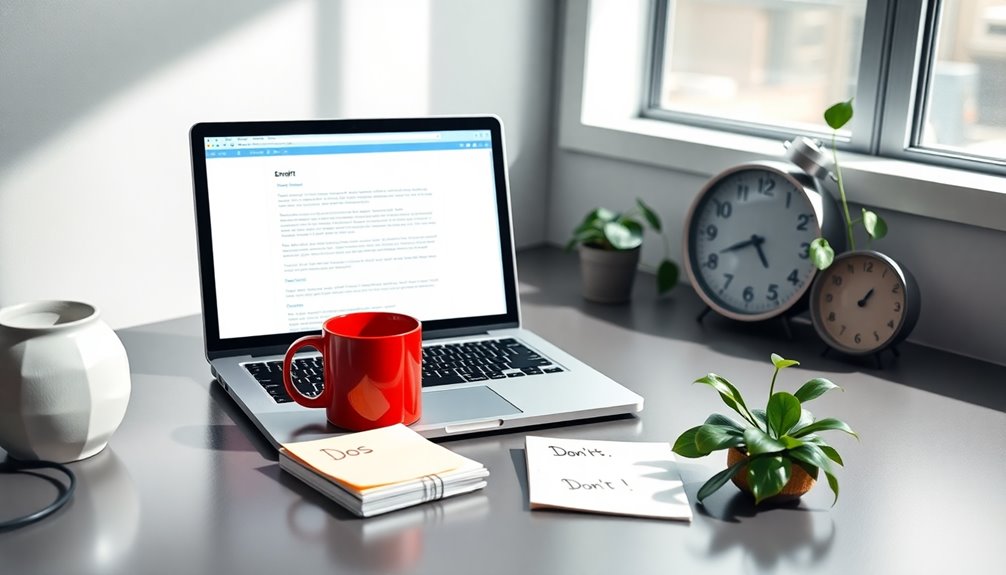
When it comes to following up after an interview, knowing the dos and don'ts can make all the difference.
First, do send your follow-up email within 24-48 hours. This timeline helps maintain a fresh impression and shows your enthusiasm for the position. Be sure to thank the interviewer for their time and express your continued interest in the position.
Don't use a generic template; instead, personalize your email by referencing specific topics discussed during the interview. This approach enhances engagement and demonstrates genuine interest.
Also, do keep your email concise and focused, ideally within 1-2 paragraphs. This respects the interviewer's time while highlighting your key qualifications.
Avoid adopting a demanding tone; maintaining a professional and courteous approach is essential for a positive perception of your candidacy.
Finally, do proofread your email for grammar and spelling errors. Attention to detail reflects your professionalism and commitment to the role. Additionally, consider implementing data-driven marketing strategies in your follow-up to demonstrate your proactive approach and understanding of industry trends.
Examples of Follow-Up Scenarios
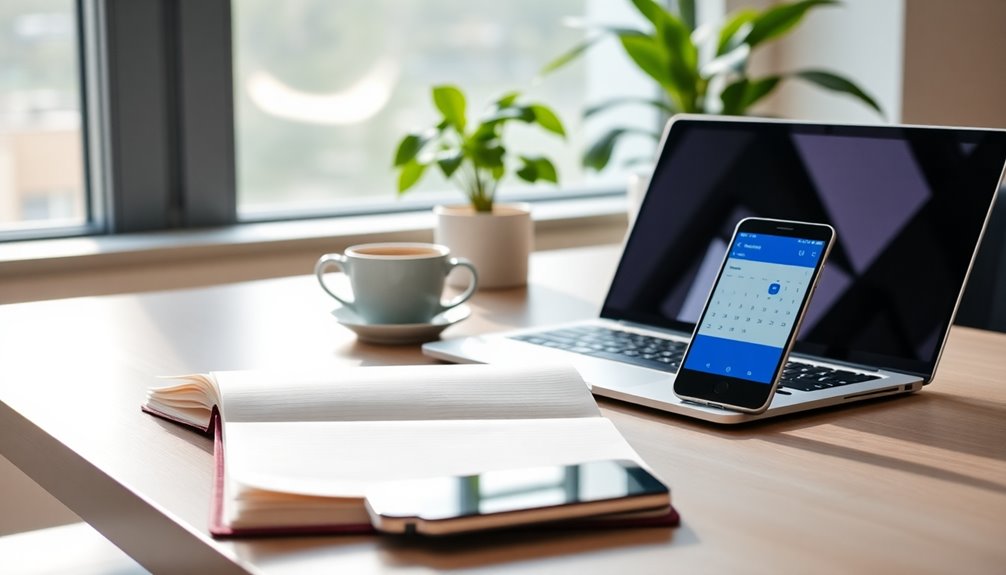
Follow-up scenarios can vary based on your circumstances, and knowing how to approach each one is crucial.
After your interview, sending a thank-you email within 24 hours can significantly boost your chances. Recruiters appreciate this gesture, so make sure to personalize your message by referencing specific topics discussed during the interview. This shows your engagement and helps you stand out.
If you haven't heard back after two weeks, it's perfectly acceptable to send a follow-up email inquiring about your application status. This demonstrates your continued interest and professionalism, keeping you on the radar of hiring managers.
If you receive another job offer, notify the hiring manager about it while reaffirming your strong interest in their position. This transparency can build rapport and show your commitment.
Lastly, if a month passes without a response, consider sending a gentle reminder about your application status. This enhances your professional reputation and indicates persistence without appearing pushy. Additionally, being aware of background check timeframes can help you manage your expectations during the waiting period.
Pro Tips for Writing Effective Emails
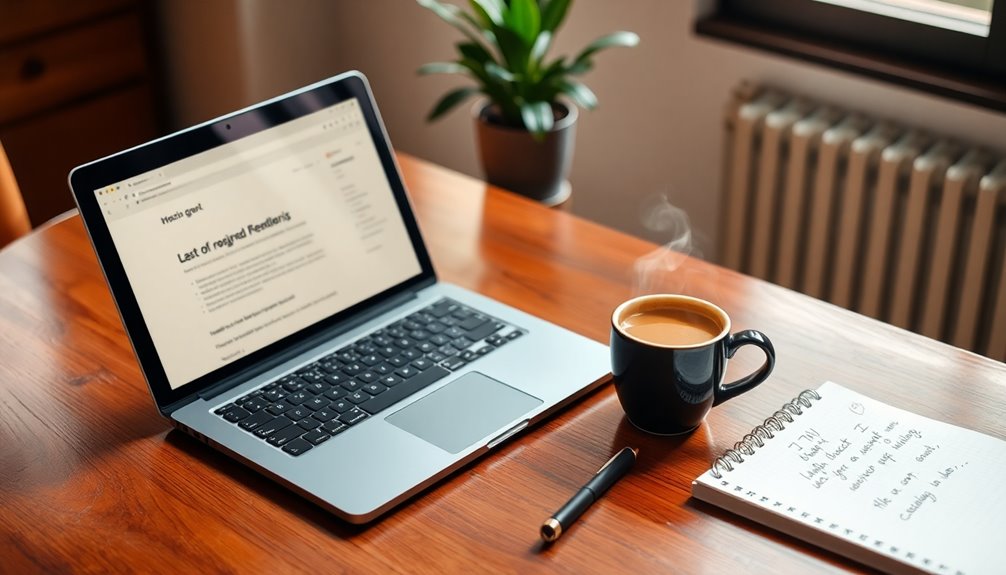
After you've identified the right scenarios for following up, it's time to focus on crafting your email effectively. Start with a clear subject line, like "Thank You for the Opportunity," to ensure your follow-up email captures attention right away.
Maintaining a professional tone is crucial, so use concise language to respect the recipient's time while getting your message across. Personalize your email by referencing specific topics discussed during the interview. This approach not only demonstrates your engagement but also reinforces your interest in the role.
Aim to send your follow-up email within 24-48 hours post-interview, as timely communication keeps you fresh in the interviewer's mind and shows your enthusiasm for the position. Before hitting send, take a moment to proofread your email. Spelling or grammatical errors can leave a negative impression, so attention to detail is vital.
Final Thoughts
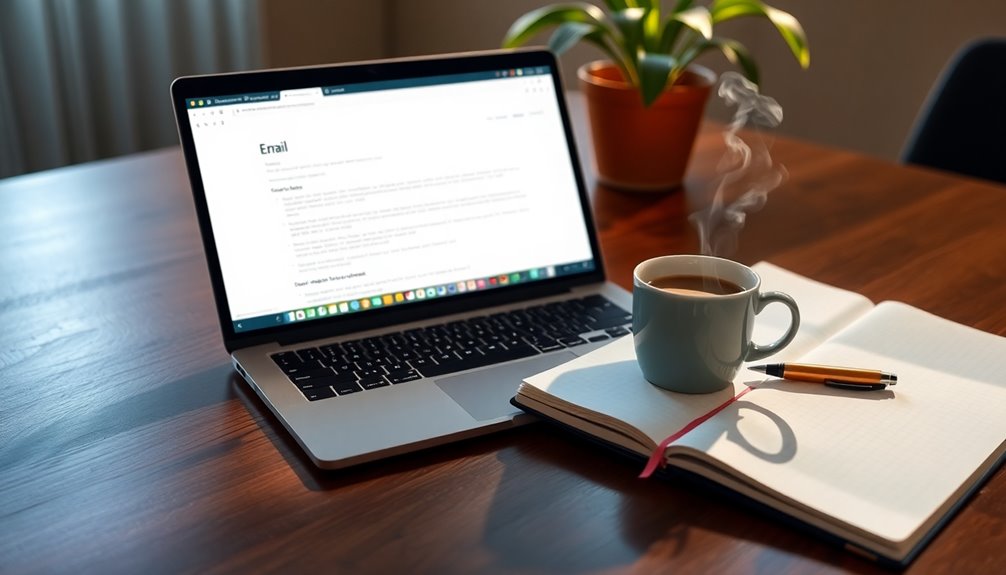
Effective communication can be the key to leaving a lasting impression after your interview. Sending a well-crafted follow-up email within 24-48 hours demonstrates your genuine interest in the position and expresses your appreciation for the opportunity to interview.
Personalizing your message by referencing specific topics discussed can make your email stand out and reinforce your suitability for the role.
Don't underestimate the power of a concise and focused follow-up. Recruiters appreciate receiving these emails, with studies showing that 80% find them valuable. A short thank you note can strengthen the professional relationship you've built and keep you on the hiring manager's radar.
If it's been two weeks since your interview and you haven't heard anything, it's perfectly acceptable to send another follow-up email. Use this chance to reaffirm your interest in the position and kindly request a status update.
This approach shows patience and professionalism, keeping your enthusiasm front and center without appearing overly eager. Additionally, maintaining effective communication can also help you protect your energy during the job search process, ensuring you remain focused and positive.
Frequently Asked Questions
How Do You Write a Follow up Email After a Successful Interview?
To write a follow-up email after a successful interview, start by sending it within 24-48 hours to keep your candidacy fresh in the interviewer's mind.
Personalize your message by referencing specific points from your conversation, showing your genuine interest.
Keep it concise, ideally 1-2 paragraphs, expressing gratitude for the opportunity and reaffirming your enthusiasm for the role.
Use a clear subject line and end with a polite sign-off, including your contact information.
How Do You Follow up on an Interview Email That You Are Still Interested?
To follow up on an interview email and show your continued interest, send a brief message within 24-48 hours.
Thank the interviewer for their time and mention specific highlights from your conversation. This personal touch demonstrates your engagement.
Use a clear subject line like "Thank You" and respectfully inquire about the next steps in the hiring process.
Keeping it concise respects their time while reaffirming your enthusiasm for the position.
How Soon Should I Send a Follow-Up Email After an Interview?
You should aim to send your follow-up email within 24 to 48 hours after the interview.
This timing helps you stay fresh in the interviewer's mind and shows your enthusiasm for the position.
Just be careful not to send it too soon, as that can feel pushy.
If you were given a specific timeline for decisions, make sure to respect that while crafting your follow-up.
This balance demonstrates professionalism and interest.
How Do You Politely Ask for an Update After an Interview?
To politely ask for an update after an interview, wait about one to two weeks.
Start your email with a clear subject line like "Checking in on my application status."
Keep it concise, expressing your continued interest in the role.
Reference the interview date and any key points you discussed to jog the interviewer's memory.
Always maintain a professional tone and thank them for their time, regardless of the update.
